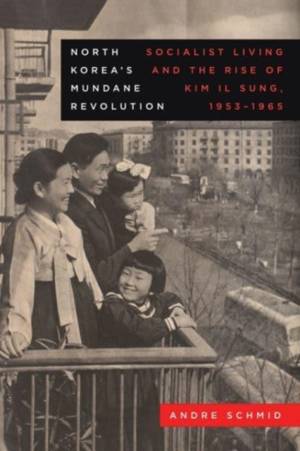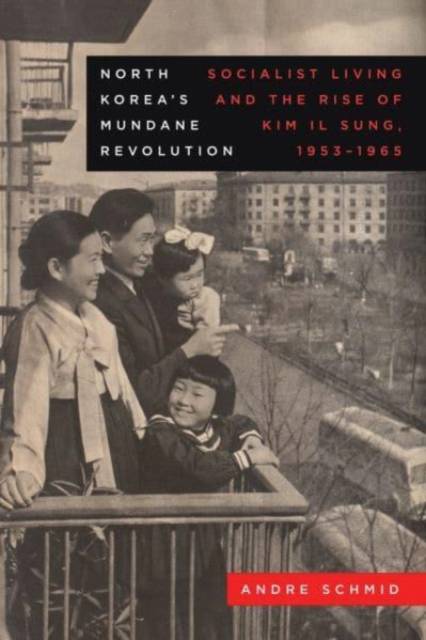
- Afhalen na 1 uur in een winkel met voorraad
- Gratis thuislevering in België vanaf € 30
- Ruim aanbod met 7 miljoen producten
- Afhalen na 1 uur in een winkel met voorraad
- Gratis thuislevering in België vanaf € 30
- Ruim aanbod met 7 miljoen producten
Zoeken
North Korea's Mundane Revolution
Socialist Living and the Rise of Kim Il Sung, 1953-1965 Volume 19
Andre Schmid
€ 59,45
+ 118 punten
Uitvoering
Omschrijving
When the crucial years after the Korean War are remembered today, histories about North Korea largely recount a grand epic of revolution centering on the ascent of Kim Il Sung to absolute power. Often overshadowed in this storyline, however, are the myriad ways the Korean population participated in party-state projects to rebuild their lives and country after the devastation of the war. North Korea's Mundane Revolution traces the origins of the country's long-term durability in the questions that Korean women and men raised about the modern individual, housing, family life, and consumption. Using a wide range of overlooked sources, Andre Schmid examines the formation of a gendered socialist lifestyle in North Korea by focusing on the localized processes of socioeconomic and cultural change. This style of "New Living" replaced radical definitions of gender and class revolution with the politics of individual self-reform and cultural elevation, leading to a depoliticization of the country's political culture in the very years that Kim Il Sung rose to power.
Specificaties
Betrokkenen
- Auteur(s):
- Uitgeverij:
Inhoud
- Aantal bladzijden:
- 352
- Taal:
- Engels
- Reeks:
Eigenschappen
- Productcode (EAN):
- 9780520392847
- Verschijningsdatum:
- 30/01/2024
- Uitvoering:
- Paperback
- Formaat:
- Trade paperback (VS)
- Afmetingen:
- 150 mm x 226 mm
- Gewicht:
- 476 g

Alleen bij Standaard Boekhandel
+ 118 punten op je klantenkaart van Standaard Boekhandel
Beoordelingen
We publiceren alleen reviews die voldoen aan de voorwaarden voor reviews. Bekijk onze voorwaarden voor reviews.











